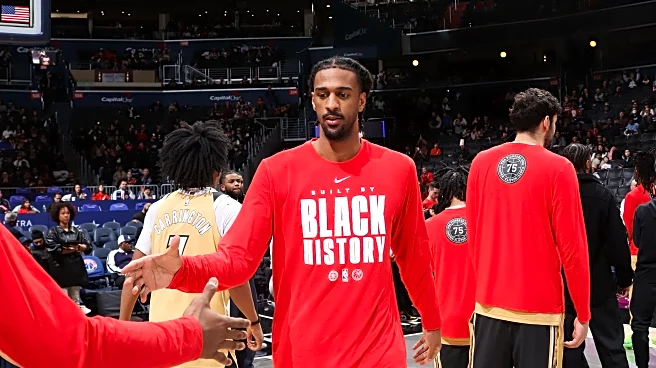What's Happening?
Dawn Staley, head coach of South Carolina's women's basketball team, has shared her perspective on the challenges facing women in coaching roles within the NBA. After interviewing with the New York Knicks,
Staley expressed doubt that the league is ready to hire a female head coach. She highlighted the scrutiny a female coach would face, particularly during losing streaks, where attention might shift from team performance to her gender. Despite her impressive coaching resume, Staley believes the NBA is not prepared for such a historic hire, although she remains hopeful for future change.
Why It's Important?
Staley's insights are significant in the ongoing discussion about gender equality in professional sports. Her comments reflect the barriers women face in achieving leadership roles in male-dominated fields. The potential hiring of a female NBA head coach would be a groundbreaking step towards gender parity, challenging existing norms and inspiring more inclusive practices. However, Staley's skepticism highlights the cultural resistance that could slow progress, affecting the pace at which women achieve leadership positions in sports. Her experience with the Knicks serves as a case study for the challenges and opportunities in promoting gender equality in sports leadership.
What's Next?
Staley's experience with the Knicks could serve as a blueprint for future female candidates seeking coaching roles in the NBA. She has offered to share her insights with those interested in pursuing such positions, potentially preparing them for the challenges ahead. NBA teams may need to evaluate their readiness to support a female head coach, considering the cultural shift required to embrace such a change. The conversation around gender equality in sports leadership is likely to continue, with stakeholders examining the implications of breaking traditional barriers and promoting diversity in hiring practices.
Beyond the Headlines
Staley's remarks highlight broader societal issues regarding gender roles and expectations. The scrutiny she anticipates for a female head coach reflects deep-seated biases that extend beyond sports, influencing perceptions of women's capabilities in leadership positions. Addressing these biases requires a cultural shift not only within sports but across various sectors, promoting a more equitable environment for women to thrive in leadership roles. The dialogue initiated by Staley's comments could contribute to a gradual change in attitudes, encouraging organizations to prioritize diversity and inclusion in their hiring practices.











